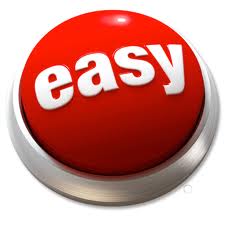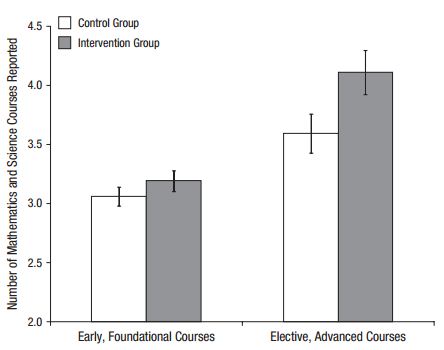
Judith Harackiewicz and her colleagues have recently reported an intervention that is inexpensive, simple, and leads high school students to take more STEM courses.
The intervention had three parts, administered over 15-months when students were in the 10th and 11th grades. In October of 10th grade researchers mailed a brochure to each household titled Making Connections: Helping Your Teen Find Value in School. It described the connections between math, science, and daily life, and included ideas about how to discuss this topic with students.
In January of 11th grade a second brochure was sent. It covered similar ideas, but with different examples. Parents also received a letter that included the address of a password-protected website devised by researchers, which provided more information about STEM and daily life, as well as STEM careers.
In Spring of 11th grade, parents were asked to complete an online questionnaire about the website.
There were a total of 188 students in the study: half received this intervention, and the control group did not.
Students in the intervention group took more STEM courses during their last two years of high school (8.31 semesters) than control students (7.50) semesters.
This difference turned out to be entirely due to differences in elective, advanced courses, as shown in the figure below.
The first brochure that researchers sent to subjects included a letter thanking them for their ongoing participation in the longer study. Hence, subjects could reasonably conclude that the present study was part of the longer study.
That's worth bearing in mind because ordinary parents might not be so ready to read brochures mailed to them by strangers, nor to visit suggested websites.
But that's not a fatal flaw of the research. It just means that we can't necessarily count on random parents reading the materials with the same care.
To me, the effect is still remarkable. To put it in perspective, researchers also measured the effect of parental education on taking STEM courses. As many other researchers have found, the kids of better-educated parents took more STEM courses. But the effect of the intervention was nearly as large as the effect of parental education!
Clearly, further work is necessary but this is an awfully promising start.
Harackiewicz, J. M, Rozek, C. S., Hulleman, C. S & Hyde, J. S. (in press). Helping parents to motivate adolescents in mathematics and science: An experimental test of a utility-value intervention. Psychological Science.

 RSS Feed
RSS Feed